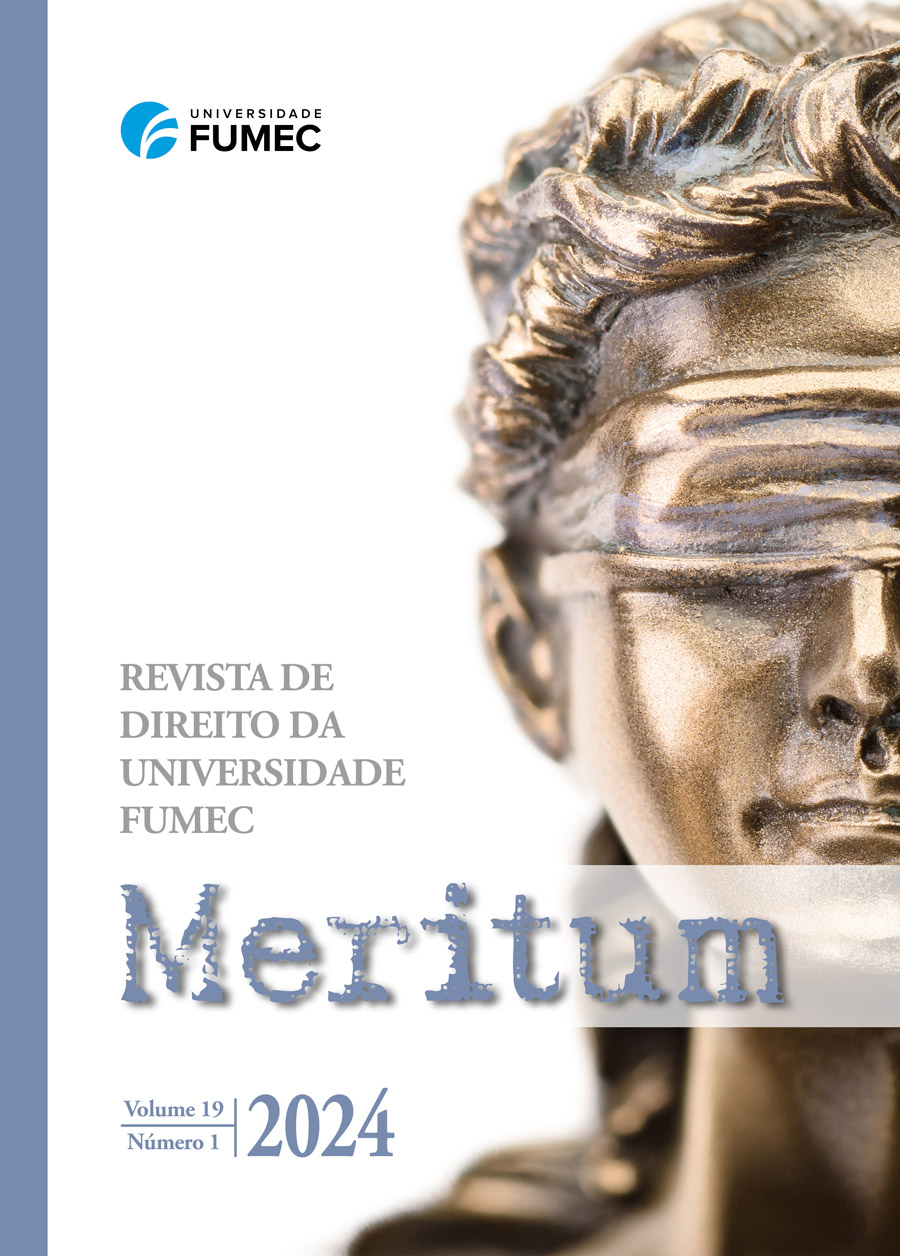The ADMINISTRATIVE AND JUDICIAL RECOGNITION OF DISABILITY AND THE SYSTEMIC UNDERSTANDING OF THE LEGAL SYSTEM
ESSENTIAL QUESTIONS ABOUT BIOPSYCHOSOCIAL ASSESSMENTS ACCORDING TO THE NEW YORK CONVENTION, THE FEDERAL CONSTITUTION AND THE STATUTE OF PERSONS WITH DISABILITIES
DOI:
https://doi.org/10.46560/meritum.v19i1.9843Abstract
Background: The expert act of diagnosing a disability, in judicial and administrative processes, is a complex issue that has not been well addressed by the Public Authorities, making it difficult for Persons with Disabilities to access their rights. Objective: It is to assess whether or not, in the aforementioned processes, the standards contained in the New York Convention, the Federal Constitution and Law 13,146/2015 on the biopsychosocial assessment of Persons with Disabilities are respected, proposing – if the answer is negative – possible solutions to face the problem. Method: Use of deductive and inductive methods, through bibliographic, legislative and jurisprudential research. Results: The text defends that disability cannot be assessed through expertise based only on biomedical criteria, otherwise the act will be null and void. Only through a biopsychosocial assessment, carried out by a multidisciplinary and interdisciplinary team, with analysis of the person's potential, is it legally possible to assess the presence or absence of a disability in a person. And, according to the systemic view of the legal system, not even a law could establish specific cases of disability, and in all cases a biopsychosocial assessment must be carried out. Contributions: Diagnosing the deficit in the provision of this service essential to the access of the rights of people with disabilities, the article seeks to contribute to the proper understanding of the legal issues involved, recommending that the Public Administration and the Judiciary be adequately structured to carry out appropriate biopsychosocial assessments recognition of disability.
Downloads
Published
Issue
Section
License
Autores que publicam nesta revista concordam com os seguintes termos:
- Autores mantém os direitos autorais e concedem à revista o direito de primeira publicação, com o trabalho simultaneamente licenciado sob a Licença Creative Commons Attribution que permite o compartilhamento do trabalho com reconhecimento da autoria e publicação inicial nesta revista;
- Autores têm autorização para assumir contratos adicionais separadamente, para distribuição não-exclusiva da versão do trabalho publicada nesta revista (ex.: publicar em repositório institucional ou como capítulo de livro), com reconhecimento de autoria e publicação inicial nesta revista;
- Autores têm permissão e são estimulados a publicar e distribuir seu trabalho online (ex.: em repositórios institucionais ou na sua página pessoal) a qualquer ponto antes ou durante o processo editorial, já que isso pode gerar alterações produtivas, bem como aumentar o impacto e a citação do trabalho publicado (Veja O Efeito do Acesso Livre).






